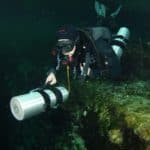
Best Sidemount BCD Review – Perfect for Cave and Wreck Diving
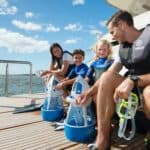
Best Yamaha Underwater Sea Scooters Review
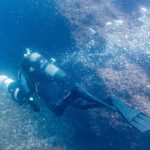
Fastest Underwater Sea Scooter Review
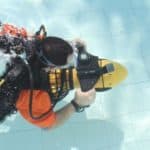
Best Underwater Sea Scooters Review
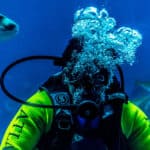
Best Cold Water Regulator Review and Buying Guide
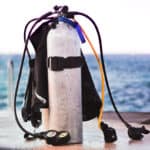
Best Scuba Regulator Review – Which One is the Most Reliable?
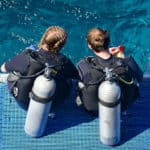
Best Scuba BCD Review
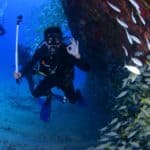
Best Beginner BCD Review
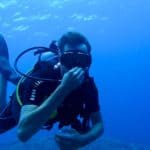
Back-Inflate vs. Jacket BCD – Which Style is Right for You?
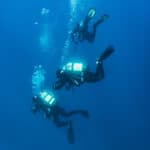
Best Back Inflate BCD Review
If you are looking to get started with scuba diving, you should first try out snorkeling. Snorkeling is a fun and cheap way to the ocean without much investment. Just rent a snorkel, mask, and fins and you can start snorkeling without any certifications.
Scuba diving, on the other hand, requires much more equipment, knowledge, and a 4-day certification course. Beginner divers are limited to shallow depths of just 16-32 feet below sea level, but with more practice and training can reach greater depths.
Once you have more certifications, you will be able to go to more places, and of course, attempt to reach deeper depths when you dive. Generally speaking, the further down you go, the more the aquatic flora and fauna changes. Scuba diving is best done with a group, because any equipment malfunctions or accidents are deadly without anyone watching your back.
